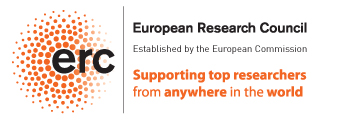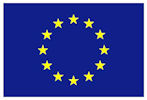Our Advisory Board
International Scientific Advisory Board
We are fortunate to have the support and expertise of our International Scientific Advisory Board:

Silke’s areas of expertise and research are Global Environmental Assessment, Science and Public Policy, New Forms of the Governance of Science, Science and Technology Studies, Comparative Policy Analysis and Environmental Governance. She is currently Senior Research Scientist at the Helmholtz Centre for Environmental Research – UFZ in the Department of Environmental Politics and has recently published on the challenges of building cosmopolitan climate expertise - with reference to Germany, as well as a paper in Regional Environmental Change entitled Moving Beyond the Linear Model of Expertise? IPCC and the Test of Adaptation. Her latest project is a Nested Networks project entitled: Neue Formen der Governance der globalen Umweltforschung (NESNET). She isvspeaker of the UFZ Working Group "climate change" and member of the Council of the Science & Democracy Network
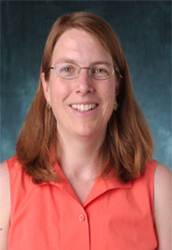
Lisa Dilling is Assistant Professor of Environmental Studies at the University of Colorado, Boulder. Her career has spanned both research and practice arenas of the science-policy interface, including program leadership for NOAA and the U.S. Global Change Research Program. Her current research focuses on the use of information in decision making and science policies related to climate change, adaptation, and the carbon cycle. She is a co-editor of the book Creating a Climate for Change: Communicating climate change and facilitating social change from Cambridge University Press.
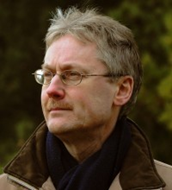
My work explores the idea of climate change using historical, cultural and scientific analyses and illuminates the varied ways in which climate change is deployed in public and political discourse. I believe it is important to understand and describe the ideological, political and ethical work that the idea of climate change is currently performing across our social worlds. My research interests are therefore concerned with representations of climate change in history, culture and the media; with how knowledge of climate change is constructed and the interactions between knowledge and policy more generally (especially in the IPCC and IPBES); and with the construction, application and evaluation of climate scenarios for impact, adaptation and integrated assessment. I welcome approaches from graduate students seeking to study for a PhD in any of these areas. I am a member of the Science, Society and Sustainability (3S) Research Group in the School.
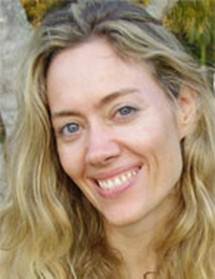
Myanna Lahsen (PhD, Anthropology) is Associate Researcher in the Earth System Science Center at the Brazilian Institute for Space Research (INPE) in Brazil. She is also Editor of the domain on the Social Status of Climate Change Science with the interdisciplinary review journal WIREs Climate Change and is a member of the Advisory Board of Nature Climate Change. Until recently, she was Social Science Officer in the Brazil-based Regional Office of the International Geosphere-Biosphere Programme (IGBP) and Research Scientist at the University of Colorado’s Center for Science and Technology Policy Research in Boulder, USA. Myanna's research focuses on environmental science policy and politics in the US and Brazil, with primary attention to socio-cultural dynamics, global environmental change, and development issues. In addition to numerous, multi-year research grants from the U.S. National Science Foundation, Myanna has received fellowship awards under the Jacob K. Javits and EPA STAR fellowship programs, and in the Advanced Study Program at the U.S. National Center for Atmospheric Research and Harvard’s Kennedy school of Government.
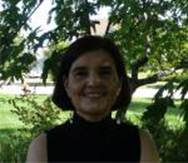
Professor, School of Natural Resources and Environment, University of Michigan, Ann Arbor. I am a policy scientist (PhD Political Science MIT) focusing on the human dimensions of global change and social studies of science. I am particularly interested in understanding: (a) the intersection between development and climate, especially concerning the relationship between anti-poverty programs and risk management (b) the use of technoscientific information, especially seasonal climate (El Nino forecasting and climate projections) in building adaptive capacity to climate variability and change (drought planning, water management, and agriculture) in the U.S. (Great Lakes) and Latin America (Brazil, Mexico and Chile); (c) the impact of technocratic decisionmaking on issues of democracy and equity; (d) and the co-production of science and policy and the role of technocrats as decisionmakers.
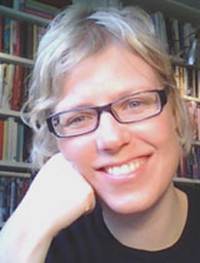
Eva’s research draws attention to the role of knowledge and expertise in the governance of environmental problems such as climate change. To that end her work has primarily raised questions about how of climate governance. How is how is the climate conceptualised and construed as a domain of government? How is climate governance accomplished in practical and technical terms? How are agent categories and subjectivities constituted through the practices of climate governance?
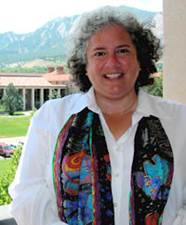
Elizabeth is an Assistant Professor of Political Science and Earth, Atmospheric & Planetary Sciences at Purdue University. Her primary areas of research are climate services, how to improve the utility of climate science information for decision makers,and how to design, implement, and evaluate climate-service organisations.
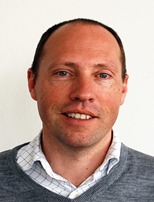
Arthur is Chief Scientist at the PBL Netherlands Environmental Assessment Agency (Planbureau voor de Leefomgeving, PBL); Professor of Science and Environmental Public Policy in the IVM Institute for Environmental Studies at the VU University Amsterdam; Visiting Professor in the Centre for the Analysis of Time Series and the Grantham Research Institute on Climate Change and the Environment at the London School of Economics and Political Science (LSE); and Research Affiliate in the Political Economy & Technology Policy Program of the Center for International Studies at the Massachusetts Institute of Technology (MIT).
At IVM he co-leads the research theme ‘Science and Values for Environmental Governance’ within the Department of Environmental Policy Analysis which focuses on the role of scientific knowledge and values for addressing complex environmental problems, and specialises in three key areas: communicating scientific uncertainty; values and sustainability transitions; and producing sustainability science.

Jeroen is Associate Professor at the Department of Innovation, Environmental and Energy Sciences, Copernicus Institute of Sustainable Development at Utrecht University. His recent research interests focus on areas such as the uncertainty and scientific controversies on anthropogenic climate change and he lead-authored a report to parliament "Room for Climate Debate", presenting an in depth analysis of uncertainty and controversy on climate change and proposed new ways to address climate change uncertainties in the science policy interface. In 2010 he presented his findings to a parliamentary hearing on the (alleged) errors in the IPCC Fourth Assessment report.
Other work has focussed on climate adaptation under uncertainty and was involved in developing a framework to characterize uncertainty in adaptation decisions and to link it to an appropriate policy strategy to deal with uncertainty. In a follow-up project he also explored approaches and principles to resilience for adapting an urban delta (Rotterdam), a nature area (Wadden), fresh water supply (Groene Ruggegraat), Public Health, and water safety (Delta Committee).

